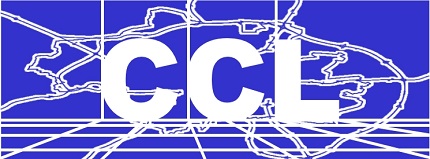CCL
City Crowd Logistics

Duration: 1 September 2017 to 30 September 2019
Project location: Munich
Results practice demonstrator
Performing research institutions

Project partners

Funding body
The research project 19665 N of the Bundesvereinigung Logistik was funded by the Federal Ministry of Economics and Energy via the AiF in the programme for funding "Industrielle Gemeinschaftsforschung (IGF)" on the basis of a resolution of the German Bundestag.

Background
City Crowd Logistics (CCL) is an innovative idea for the resource-efficient provision of last mile transport services in urban environments. It involves numerous individuals (e.g. commuters) and SMEs, as well as large companies working together across companies to carry out urban transport services in a cooperative manner using various modes of transport (suburban rail, tram, bus, truck, car, (electric) scooter, (electric) bicycle and footpath). By co-using the existing commuter flows in public transport, transports of small consignments on partial routes can even be CO2-neutral. In contrast to many conventional approaches to solving the problem of the last mile, crowd logistics is essentially a decentralized and self-organizing approach. For successful implementation, however, coordination of the decentralized agents is necessary. Cooperation platforms (marketplaces) are suitable for this purpose, which create a hub-spoke structure in terms of information logistics and thus indirect networking of the agents involved in the distribution of goods. However, in order to create an economic alternative to competing distribution concepts, two essential prerequisites must be met:
- Enabling low-cost inner-city distribution by creating structures and processes for the collection and bundling of goods by commuters and private individuals
- Security of business transactions - critical to the creation of crowd logistics networks is the avoidance of unfulfilled orders. To achieve this, it is necessary for the acceptance of the solution, similar to the energy network, to establish a central authority (e.g. the platform operator), which ensures the processing, even if no take-away opportunity is found.






